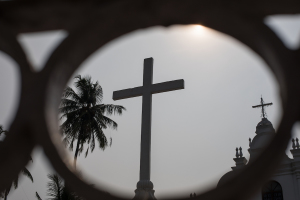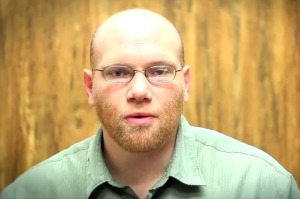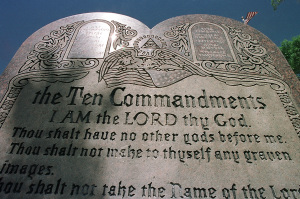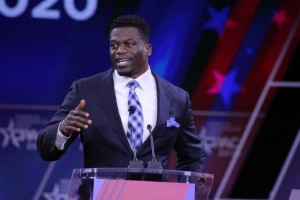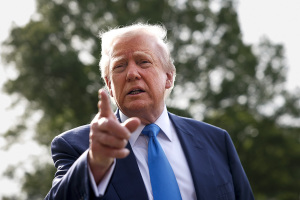Trump meets 27 survivors of persecution in Oval Office, learns about their plight
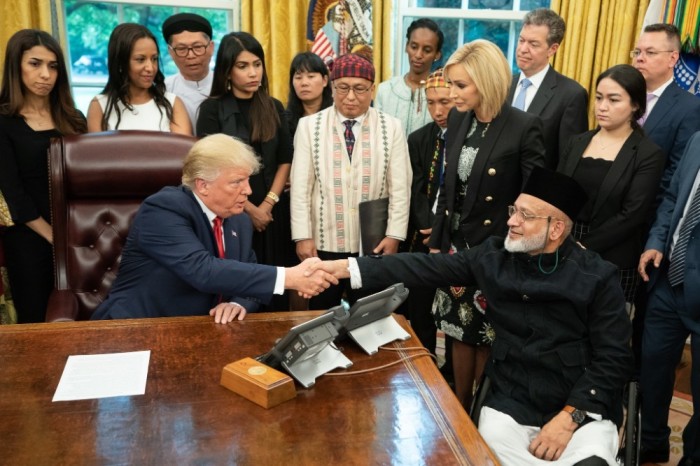
President Donald Trump met with 27 survivors of religious persecution from all over the world at the White House Wednesday with some thanking him for his administration’s efforts to promote international religious freedom and others asking him to help their community.
While the U.S. State Department held the second Ministerial to Advance Religious Freedom with over 106 countries participating in Washington this week, persecuted believers from 17 countries visited the Oval Office with Ambassador-at-large for International Religious Freedom Sam Brownback and Florida televangelist and Trump’s spiritual adviser Paula White.
Among those who participated in the visit were American pastor Andrew Brunson, who was freed from prison in Turkey last year; Nadia Murad, a Yazidi advocate and Nobel Peace Prize winner; and Mariam Ibrahim, a Christian mother who was freed from death row in Sudan in 2014.
They were joined by survivors and advocates from nations like China, Cuba, Tibet, Pakistan, Iran, Burma, North Korea, Sri Lanka, Eritrea, New Zealand and other nations.
“With us today are men and women of many different religious traditions from many different countries. But what you have in common is each of you has suffered tremendously for your faith: you’ve endured harassment, threats, attacks, trials, imprisonment and torture,” Trump said at the beginning of the meeting. “Each of you has become a witness to the importance of advancing religious liberty all around the world. It’s about religious liberty.”
Trump praised his visitors, saying that they have endured more than most people are capable of.
“I want to congratulate you,” Trump told them.
Among those who spoke during the meeting was Farid Ahmed, a survivor of the terrorist attack on mosques in Christchurch, New Zealand this past March. Ahmed, who lost his wife in the shooting, also spoke on the first day of the ministerial where he explained why he had forgiven the shooter.
“Mr. President, thank you from New Zealand. Thank you for your leadership standing up for humanity, standing up for religious groups and their rights. Thank you for supporting us during the 15 March tragedy in Christchurch,” he said. “God bless you and God bless the United States.”
Dr. Hkalam Samson, president of Kachin Baptist Convention in Northern Myanmar, told the president about how Christians are being persecuted in Myanmar and thanked him for issuing a sanction this week against top Myanmar military generals.
“As Christians in Myanmar, we are being oppressed and tortured by the Myanmar military government,” Samson said. “We don’t have a chance for religious freedom as ethnic armed groups fight against the central military government. Please American government, focus on ethnic people and ethnic leader to get democracy and federalism. It is very important for your help and your support.”
As hundreds of thousands of Rohingya Muslims have been pushed from their homes in the Rakhine state of Myanmar since 2017 in an onslaught that advocates have labeled a “genocide,” one Rohingya refugee asked Trump how he plans to help his community.
“Most of the Rohingya refugees are willing to go back home as soon as possible,” the refugee, Mohib Ullah, said. “What is the plan to help us?”
Illyong Ju, a defector from North Korea, told Trump about how all of his aunt’s family are in a political prison camp just because his aunt’s father-in-law is a Christian. He also stated that his cousin’s whole family was executed for sharing the Gospel.
“Even though the persecution of Kim Jong Un, the North Korean citizens, they want the Gospel and they want to worship now,” Ju said. “They are worshiping in underground churches right now.”
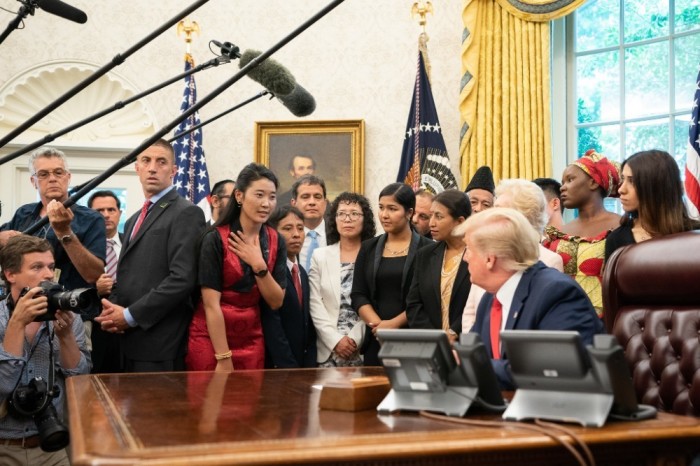
Yuhua Zhang, a Falun Gong practitioner told the president about how her husband is imprisoned in China. She also talked about how some in her community have been subjected to forced organ harvesting.
“We should take action,” Zhang said. “Just words doesn’t work. How do [we take] action against the Chinese communist regime?”
Bonya Ahmed, a survivor of an Islamic State attack in Dhaka, Bangladesh in 2015, told the president about how her husband was killed and her home was burned.
“I have lost my home, they burned my home and they have taken my land,” she said.
Trump asked: “Who took the home and the land?”
“The Muslim fundamentalist group. They are getting the political shelter, always,” she responded.
Jewher Ilham, the daughter of an imprisoned Uighur scholar in China, told Trump about how millions of Uighurs have been sent to internment camps in Western China. She told Trump that her father has been in jail for five years.
“We don’t know how long he will still be in there,” she said. “I haven’t heard from him since 2017 because that is when the concentration camps started. Anyone who goes to ask about anybody’s family member’s news will never make their way back to their own home.”
Helen Berhane, an Eritrean Christian, told Trump about the plight of Christians in Eritrea, which ranks as the seventh-worst nation in the world on Open Doors USA’s 2019 World Watch List.
Berhane told Trump that she spent 32 months detained inside a metal shipping container because of her faith.
“But the reason I am here [is] all of our pastors, they are still in prison in Eritrea, including the Patriarch [Abune] Antonios,” she said. “That is my message and voice for those who are voiceless.”
Brunson, a North Carolina missionary who spent over two years imprisoned in Turkey before his release last year thanks to pressure from the Trump administration, praised Trump’s efforts.
“An Iranian woman told me today that your fighting for me — the most powerful person in the world [fighting] for someone who is not known at all — gave hope to many people throughout the world and also many young Iranians,” Brunson said.
Dabrina Bet Tamraz, an Iranian Christian whose family is in prison for their faith, told Trump that the “Iranian people are with you.”
“My parents are pastors. They are Christian pastors. They have been arrested, all my family. My father, mother and my brother. They are free on bail awaiting trial for long sentences. My father sentenced to 10 years in prison, my mother five years. We still don’t know about my brother,” she said. “We would appreciate if you would mention my family, also Christian persecution in Iran in all your negotiations with Iran.”
Trump told Tamraz that he would.
Trump assured the visitors that Americans have “always understood that our rights come from God, not from government.”
“We know that if people are not free to practice their faith, then our freedoms are at risk and freedoms don’t mean very much,” he said. “That’s why Americans will never tire in our effort to promote religious freedom. I don’t think any president has taken it as seriously as me. To me, it is very important. It’s vital.”
The 2019 Ministerial to Advance Religious Freedom is touted by the State Department as being the largest religious freedom summit ever held, featuring over 1,000 civil society and political leaders from across the world and several survivors of religious freedom. In addition to the events taking place at the Harry S. Truman Building, dozens of affiliated religious freedom side events have been held across Washington, D.C.
Follow Samuel Smith on Twitter: @IamSamSmith
or Facebook: SamuelSmithCP















